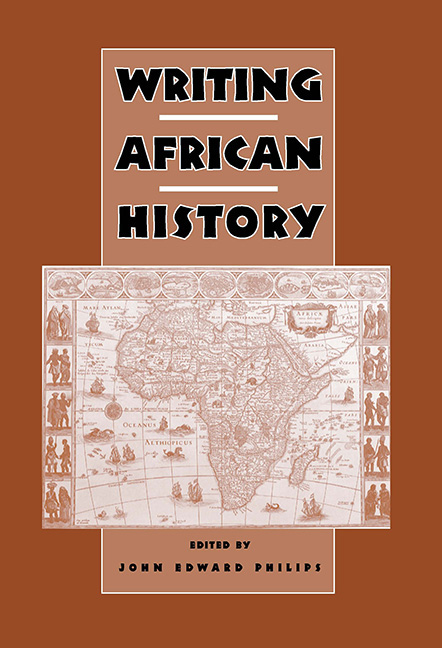1 - What Is African History?
from Part I - Background
Published online by Cambridge University Press: 11 May 2017
Summary
Whether Buddhas arise, O priests, or whether Buddhas do not arise, it remains a fact and the fixed and necessary constitution of being, that all its constituents are transitory.
—Siddhartha Gautama, Shakyamuni Buddha (Anguttara-Nikaya iii.1134)
All history begins with the necessary and inescapable observation of change around us. Writing the history of anything, including Africa, involves finding out the nature, extent and pace of that change and trying to explain it.
The craft of writing history is best learned by reading history itself, rather than by reading theories or philosophies of history. Reading history is the best way to learn to write history in part because history is a form of literature, and the best way to learn to write any kind of literature is to read it. If you want to write for the theater you should read a lot of plays. If you want to write mysteries you should read a lot of detective stories. If you want to write African history you should read a lot of African history, especially history written by the historians you most admire for their research, their interpretations, and their writing abilities. There are almost as many kinds and styles of history to choose from as there are historians, probably more, since many historians write more than one kind of history, and many works combine different types of history.
Because writing history, including African history, is a practical affair, this book is about the practice of African history. It will describe how historians of Africa investigate Africa's past, what sources they use and some of the ways they interpret those sources. It will also talk about several of the major issues and themes of African history, because no historian can ignore such issues. But this is not a book about the theory or philosophy of history; rather, it is a practical guide to understanding and writing about Africa's past. Those who want to learn more than a minimum about historical theory will have to look at other books. This chapter, and the concluding one, will try to give as much theory as is necessary to understand and write African history. A minimum of theory is necessary for a historian. Not all writing, not even all writing about the past, is history. Nor is all history good history. The assumptions of historical methods and perspectives are necessarily part of history.
- Type
- Chapter
- Information
- Writing African History , pp. 25 - 48Publisher: Boydell & BrewerPrint publication year: 2005



